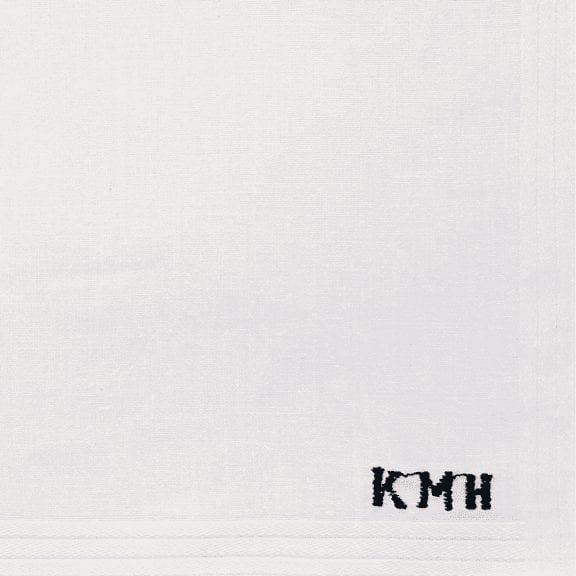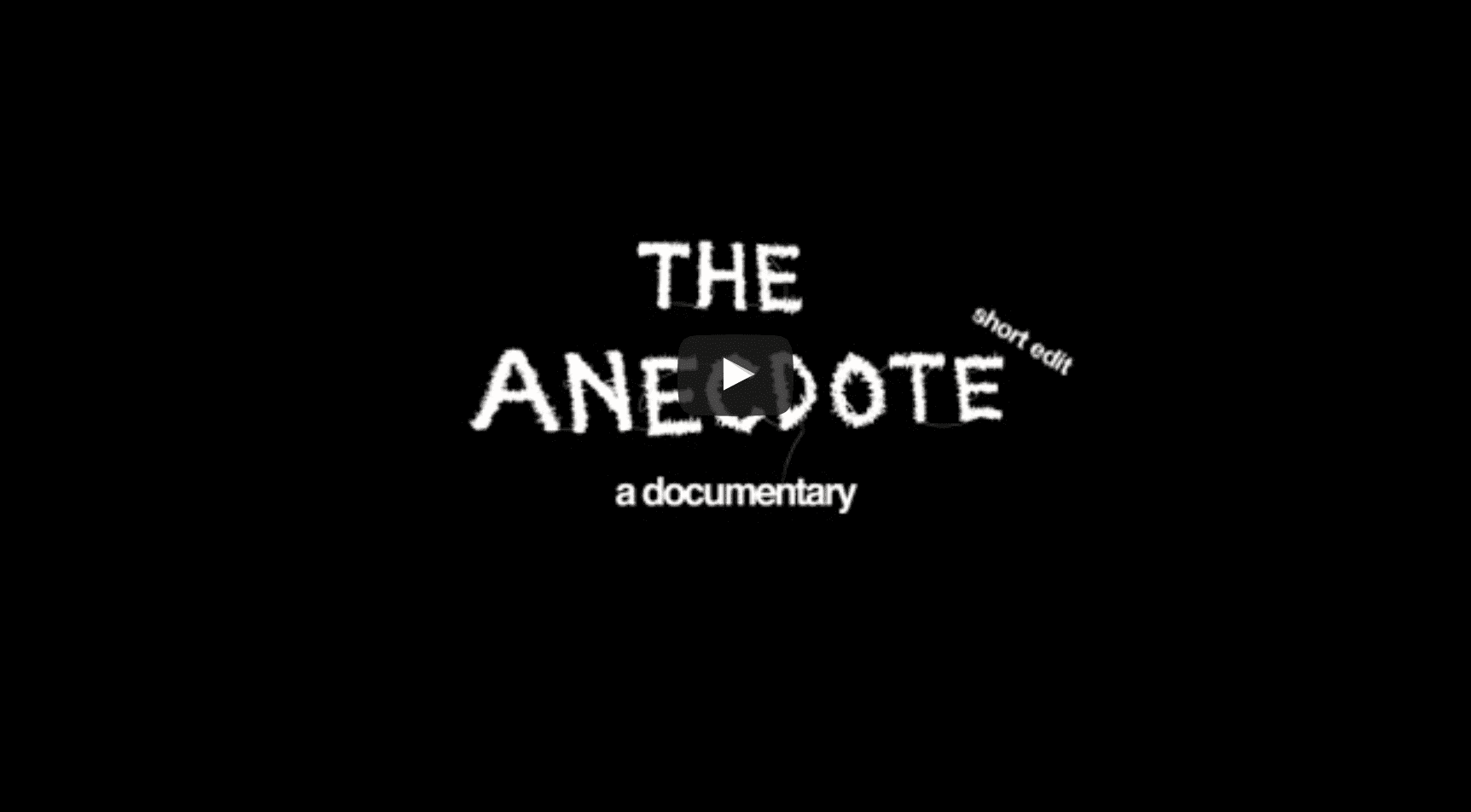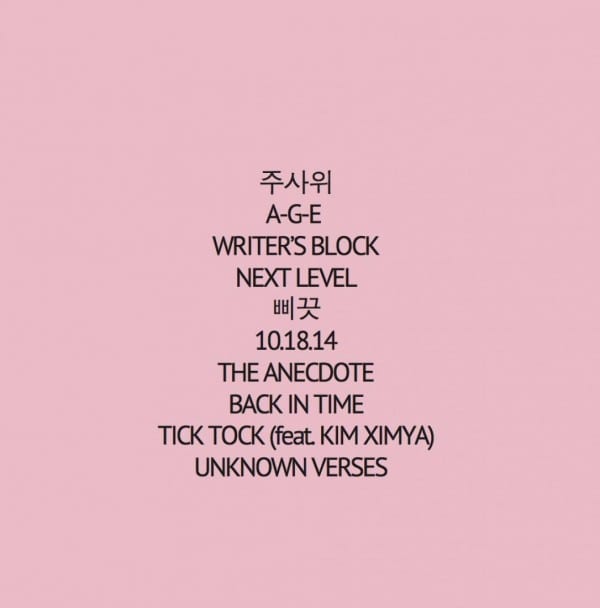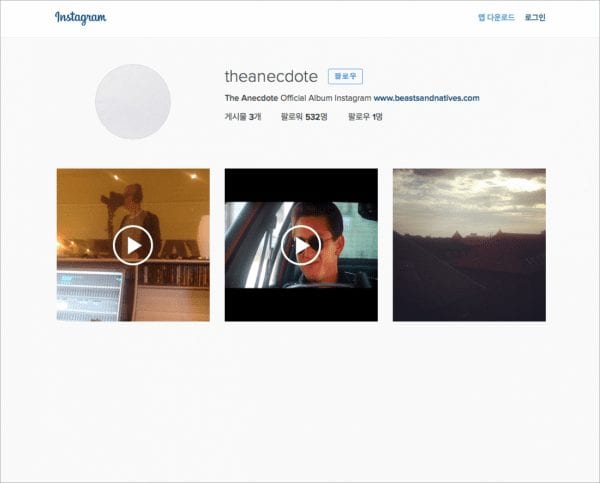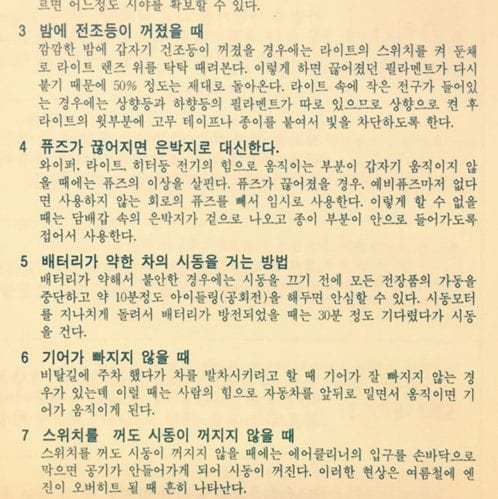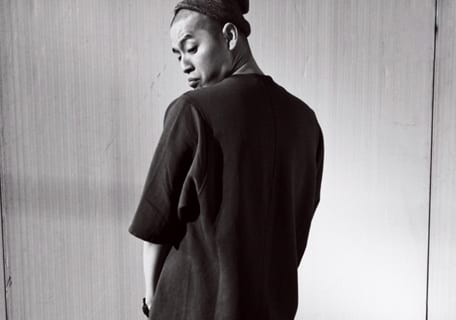Check out the new track released by XXX on SoundCloud.
Kim Haksun’s interview with BANA’s CEO Kim Kihyun on E SENS’ album ‘The Anecdote’
Read Kim Haksun’s Sounding Review with BANA’s CEO Kim Kihyun on the making of E SENS’ album ‘The Anecdote’. (via mediaus)
Kim Haksun, chief editor of music web magazine :BODA, has started a weekly series on mediaus titled ‘Sounding Review’. One week he will write brief reviews about a Korean album that has come out in the last month and which you should not miss, in the next week he will write columns on music or interview musicians.
All hiphop communities online talk about nothing but E SENS. It has been over ten days since his album was released, but still ‘The Anecdote’ is taking up most parts of people’s discussions. Critics showed a great response as well, giving the album positive reviews. The album has been sold more than 17,000 times, lining it up alongside Infinite, Autumn Vacation, Jo Soomi, and more. It can definitely be called an unprecedented incident.
In the midst of all this attention, a brief documentary on the making of ‘The Anecdote’ has come out, called ‘The Anecdote: a documentary (short edit)’, which features only the main character E SENS, and Obi Klein who made the music. Someone else appears as voice only: BANA’s CEO Kim Kihyun who produced ‘The Anecdote’. As we cannot talk to E SENS personally at the time (he is currently serving his sentence for smoking marijuana), I wanted to hear from CEO Kim Kihyun, the person who has the most to say about ‘The Anecdote’. Since the beginning of the album’s production, he has had countless discussions with E SENS [on the album], and he is the one who went with him to Denmark, watched over the production and filmed it.
The company BANA (Beasts And Natives Alike) is new to music and hiphop fans. Please introduce BANA.
BANA is currently made up of E SENS, XXX, 250, and Erick Oh. We are not limited to hiphop or music only, we work together with people from various types of arts to create new media and contents.
Have you known E SENS before he signed with BANA? And how did he end up joining you?
When I was planning BANA, I did not know E SENS. At the time, I was working for SM Entertainment as International A&R. Around the time I quit that job to start BANA, I coincidentally read a news article about E SENS preparing to go independent. That’s when I decided that E SENS would be able to do exciting work together with BANA and contacted him. Starting from the first time I told him about it, E SENS has liked BANA’s concept a lot, so he joined me. Since then, we have been in this together through all the ups and downs.
Were you planning a full-length album instead of an EP album since the time he signed with BANA?
E SENS is already an acknowledged rapper. He was thinking about his first full-length album more than anyone else, and what his career needed wasn’t an EP but a first full-length album.
After he left Amoeba Culture, the expectations for E SENS’ new album have been huge. Didn’t he feel pressured?
E SENS is not here, and I cannot speak for him about his feelings. All I can say is that he prepared the album extremely carefully, as it is his first full-length album after all.
Did he tell you what kind of album he wanted to make before the production of the album began?
As producer and A&R I continuously communicated with the artist, E SENS, from beginning until the end of the production process. There were a lot of things that E SENS wanted to express with the album, and my role was to give him advice on that. As soon as we had decided on the topics that were going to be part of the album, the concept ‘The Anecdote’ was completed. What I cared about as producer the most, was to imprint the album name ‘The Anecdote’ on people.
Had you already decided that personal stories of Kang Minho and not of rapper E SENS were going to be part of the album?
We had countless discussions. However, what he talks about is fully up to the artist. Instead of addressing the common ‘rap game’, E SENS wanted his first full-length album to contain the stories that have been occupying him, that he wanted to let out. I think it is right if E SENS himself talks more about this in the future.
Many people speak of boom bap and 1990’s sound. Had you planned for these sounds from the beginning?
When we were looking for tracks to fit the album, E SENS knew what kind of sounds he wanted so exactly and in detail that he once said “I want tracks that are clean and minimal like sushi.” Instead of imitating or reproducing the sound of a certain time, he put the focus on reinterpretation.
The album’s beats were made by only one person, producer Obi Klein. These days, it is common that an album is made up of beats by various beatmakers, why didn’t you do that?
Our first plan of ‘The Anecdote’ featured a line-up of various famous producers from abroad. Before we had the second writing camp in Denmark with Obi, we had received more than 300 tracks by several foreign producers and had been monitoring them. Actually, the first camp with Obi was a trial since E SENS did not have enough experience in working with foreign producers. However, their chemistry was as good as perfect. During the first camp, ‘The Anecdote’s very first track they worked on, ‘Back In Time’, was made.
There were many producers more famous than Obi and I wanted to try different things, but putting stuff like name value and production aside, E SENS wished to complete his first full-length album together with Obi who exactly understood ‘The Anecdote’s concept.
How did you get to know Obi?
Like I said before, I worked at SM Entertainment as International A&R for nearly three years before founding BANA. In that position, I had to work with foreign producers a lot, so I naturally got to know Obi through a music camp. At that time, he was making a lot of R&B-based songs. As I got to know him better, I found out that he had been working as hiphop producer in the USA before.
Obi has been giving songs to Korean idol groups. How did you gain the belief that you could leave the whole album to him?
SM Entertainment has a producer pool so huge it’s uncountable. However, most of those producers have a strong tendency to pop songs. There were very few who could bring a great merit to the ‘The Anecdote’ project, leaving hiphop aside. Now, Obi is indeed well-known for producing KPop songs, but he started his career as a producer originally in hiphop. He know sthe vibes and ways of various hiphop eras very well and he also expressed his strong will to produce hiphop tracks again. Actually, leaving the whole album to Obi was something that came about really naturally during the production process. Of course, as the writer, E SENS was endlessly concerned about ‘The Anecdote’s stories even outside of the studio, but the actual time spent in the studio working on ‘The Anecdote’ were only about 23 days. There, everything progressed surprisingly favorably, like assembling a jigsaw puzzle.
In South Korea there are a lot of beatmakers too and some of them have worked with E SENS before. Didn’t you consider working with national artists?
Of course there are good beatmakers in this country too. However, we wanted a slightly more special and interesting way of working. As I have worked with several foreign producers at SM Entertainment as International A&R, working with producers abroad wasn’t a difficult thing to do. Also, E SENS wanted to try a new method of working for his first full-length album.
As a whole, the album is full of boom bap beats, so did you ever consider working with US-American producers?
Obi has mainly been working as a producer in the USA from 1990 until early 2000’s. He was a member of Desert Storm and has worked under famous producer Young Guru. So his nationality doesn’t matter a lot.
Unlike other recently released hiphop albums, there are nearly no featurings.
In the beginning when we planned the album together, we said that we would let exactly one artist feature on it. We had a few candidates and didn’t know that it would be Kim Ximya in the end.
As the only featured artist, Kim Ximya’s rap was impressive. He is a rapper people are unfamiliar with, could you introduce him?
Kim Ximya is the main rapper of the duo XXX that is currently preparing to debut. XXX is made up of producer FRNK and Kim Ximya. Thanks to the mixtape they already released before, people here and there are interested in them. Lim Daebum who is currently in charge of BANA’s media team has found out about them first and let me listen to their music. The moment I heard their work, I was surprised by their music. Around the time I was certain [about them], I let E SENS listen to it too and he was in awe as well. In the beginning, we had had a veteran rapper in mind for the album’s only featuring, but since E SENS greatly appreciated Kim Ximya’s talent, he wanted Kim Ximya on his first full-length album.
The album has ten tracks, how many tracks did Obi let you listen to at first?
In July last year when we had decided to work with Obi for the first time and went to Denmark, Obi had already prepared tracks to show us. As he was used to working with SM, Obi had prepared somewhat pop-sounding songs. The moment we heard them we turned them down right away, and explained to him again from the beginning exactly how we wanted to work. I remember that Obi kept asking “I can go this far?” and started to find interest in the work. After that, Obi had clearly understood the [musical] direction of ‘The Anecdote’ and started to make tracks without needing any special guiding. The first track [he produced] was ‘Back In Time’. Since all of us were in tune with each other at the studio through sufficient conversation, we didn’t have a separate process of choosing beats.
Including ‘비행’ [Flight], a few tracks were revealed before the album[‘s release]. They were tracks good enough to be included in ‘The Anecdote’.
‘비행’ [Flight] did not really match ‘The Anecdote’s concept, so we left it out. During the production, we frequently decided to reveal those tracks that didn’t match the concept. Five tracks were revealed for free that way before ‘The Anecdote’ came out, and honestly that was done for strategical reasons too. Sometimes, songs that you cannot [buy and] possess seem more interesting. Of course, releasing those songs as singles would have been a great profit for BANA’s revenues, but in a long-time sense, I think there is a value that only songs have that are released for free.
You could have simply taken Obi’s beats and worked on them in Korea, that is how many Koreans actually work with foreign producers. Was there a reason why you personally went to Denmark to work on the songs?
Artist and producer not meeting might not be a big problem when the two sufficiently understand each other or when the track is outstandingly good, but I think that the actual best way to work on an album is for the two to put their heads together from the start. This way of working might seem somewhat strange for a Korean artist collaborating with a foreign producer, but there is no faster and more certain way than talking to each other in person.
How was working in Denmark? I’d like to know if you find that there is any big difference to working in Korea, and if you are satisfied with the results of working abroad.
Working in new surroundings with a new producer is always strange but also brings forth new results. Looking back on the approximately three weeks of time we spent [in Denmark] working on ‘The Anecdote’, they feel very awesome but also unreal. Obi also said that it was the first time ever in his producer career that he has produced anything in such a short amount of time that he was actually satisfied with. Especially around October last year during the second camp, we picked two tracks a day and continued recording and editing them. Obviously, sometimes we had to eliminate tracks from the album, but like a very perfectly made scenario, one song after the other was made that fit the album[‘s concept]. Thinking about it again, it was a dramatic production process that none of us will ever forget.
Not only the album itself, but also the documentary of the production process that you revealed via YouTube is impressive.
I wanted to do that [documentary] since the album’s early planning stages. The Korean entertainment market concentrates relatively much on the results, it seemed to me like there wasn’t any big interest in precise mentioning of the process. Since I thought that there wasn’t enough focus in the media on the planning and making of albums, I wanted us to actively focus on that. To properly make the intended content, there is a need to see the artist and the work process from a serious point of view.
Separately, I had planned a reality show of the same title as E SENS’ first solo single, ‘I’m Good’. As it went well with that project, I planned a documentary of ‘The Anecdote’. Due to the current situation we obviously couldn’t make the documentary of the production process final, like we had first planned, still I am satisfied that we were able to show many people how E SENS and Obi worked together. As of now, only the ‘Short Edit’ version has been released, but if the situation allows it I would like to raise the documentary’s quality to how it was originally planned and show it again.
In the documentary, the part where Obi is amazed by E SENS’ rap despite not understanding the language is impressive. You might call it lip service, but what did Obi say about E SENS’ rap?
In case it was lip service, Obi is a very good actor. That is how great Obi and E SENS worked together, as if they were connected as one. Basically, they couldn’t understand each other due to the language barrier, but it was extremely surprising that when there were parts that E SENS didn’t feel, Obi noticed it and gave him advice without the need for interpretation. Especially during the recording, when there were parts I personally liked so much they gave me goosebumps, Obi always felt and reacted the same. I remember something he said while working with E SENS: until then he had thought that in hiphop the lyrics were more important than in any other genre, but since working with E SENS he had realized that hiphop is a music that can be enjoyed even without understanding the language.
How did Obi react to the finished tracks?
He repeated several times that it really is a timeless and precious album. He especially said that he was very happy to release via E SENS the hiphop album he had been wanting to produce.
In the documentary there are many scenes where E SENS writes lyrics in the studio. Did he write most of the lyrics in the studio like that? He should have heard Obi’s beats in advance, was he just making corrections to the lyrics?
Since Obi made the tracks when we worked together in Denmark, E SENS could not listen to them and write the lyrics beforehand. He heard the drum line when Obi started working and immediately began writing lyrics. Most of the time, while he was finishing the lyrics the track was also in the making, so you can say that the beats and the lyrics were being produced at the same time.
The results are thoroughly album-like, not suited for singles. At this time where albums are disappearing, didn’t you have any commercial concerns as producer?
‘The Anecdote’ obviously has come out with the basic attitude an ‘album’ has to have. This is not any especially new method, it is made up of contents that are basically needed for an ‘album’. It is a basic fact that an album is something that has to extend over [different kinds of] contents. Therefore, an album is actually more commercial in some ways. This is the natural attitude when making an album, so I had no concerns.
I heard that the album was sold 16,000 times at its release. Did you expect such a huge response?
It would be a lie if I say I didn’t. However, talking about this while avoiding E SENS’ current situation would be a lie too, so what I felt was very complicated. It is an enormous pity that the one who wanted to release this album more than anyone else cannot see and feel these things close by.
The album jacket is very simple. What did you intend with the artwork?
The name BANA (Beasts And Natives Alike) and the artwork of all contents by BANA are made by Kim Hyunji who is in charge of BANA’s visual arts. When he heard about the nature of E SENS’ first full-length album, he was the one who came up with the name ‘The Anecdote’. As ‘The Anecdote’ is an album made on the basis of one person’s ‘anecdotes’, a handkerchief that takes in a person’s sweat and tears and is always held in their hand became the artwork’s main concept. Also, he apparently found that a white handkerchief would speak for several of the current situations.
The album is receiving favorable reviews and is also selling well. Have you met E SENS after the album’s release?
Before and after the album’s release I have been visiting him frequently. I try to meet him as often as I can and talk about many things. Of course I tell him a lot of news about the album, but in the current situation he cannot be wholly happy about it, which is bitter.
The artist is not present. How are you planning to do promotions from now on?
BANA wants to stand behind their artists and support them as much as possible. Actually, I ended up having to do this interview because the artist himself cannot be present. We are planning several interesting methods and new works by diverse artists. At the current time, what we do is not only the typical promotion in the media, we are looking at way more than that. So it might appear odd. It is hard to see it immediately and there might be difficulties, but I strongly believe that later, everyone will acknowledge and accept our methods as natural.
Interview by Kim Haksun, chief editor of music web magazine :BODA
He is part of the planning committee of Naver Onstage and EBS SPACE, and member of the Korean Music Awards committee. He is writing for several media and is author of the book ‘K-POP, 세계를 홀리다’ [K-POP, Fascinating the World].
The original interview is © copyright by midiaus.
Translator’s note: midiaus could not be reached after several tries, in case of a claim from their side this translated version of the interview will be removed.
E-Sens Releases ‘The Anecdote: A Documentary’
Following the release of E-Sens’ highly anticipated album [The Anecdote], Beasts and Natives Alike (BANA) dropped the short edit documentary of E-Sens and his journey throughout his album production.
E SENS’ ‘The Anecdote’ tracklist and presales
On August 15, beasts and natives alike have revealed the tracklist of E SENS’ first full-length album ‘The Anecdote’ via Instagram.
E-Sens’ First Official Album [The Anecdote] Pre-sale Begins August 10
Starting August 10th, pre-sale for E Sens’ highly anticipated album [The Anecdote] will be available through major online and offline record stores including Yes24, Interpark, Synnara Records and so on.
On August 8th, Beast And Natives (BANA) surprised everyone by revealing an unexpected poster photo of the [The Anecdote] official release date, ‘August 27th’ via Instagram (@theanecdote).
Along with this photo, BANA stated that the album pre-sale will proceed starting the 10th.
On the same day, a video was uploaded where DJ Soulscape is playing a sneak peek of an album track from [The Anecdote], striking heat to numerous online hip hop communities and SNS.
Last summer, E Sens made numerous headlines by announcing that his solo album [The Anecdote] will be dealing with meaningful and self-reflective anecdotes of his life.
https://www.youtube.com/watch?v=XrNkKdXQ3fM
“Back In Time” revealed to be one of the first album track from [The Anecdote] was released in September, heightening the fans’ anticipation for the release. But in November, E-Sens was arrested for investigation regarding his previous use of marijuana, leaving the fans with continuous debates and suppositions about the album.
The long-awaited story of [The Anecdote] highlights just how much the fans are willing to overlook his conviction for smoking marijuana.
Whether he will be able to generate new hits from behind bars will certainly be center of observation as in the history of Korean music, this will be the first album ever to be released by an artist detained in jail.
https://www.youtube.com/watch?v=cr6UNeRuU3w
After much suppositions and speculations, [The Anecdote] announces its official release date, inviting hip hop fans to finally meet the highly anticipated album.
Third episode of E SENS’ reality show ‘I’M GOOD’ revealed
A bit earlier, the third episode of E SENS’ reality show ‘I’M GOOD’ has been released via beasts and natives alike’s website.
Official Instagram account for E SENS’ album ‘The Anecdote’ revealed
Today at 1 p.m. KST, an official Instagram account for E SENS’ first album ‘The Anecdote’ has been revealed via E SENS’ official Facebook page with the note “The Anecdote [Official Album Instagram]”.
E SENS’ new track ‘비행’ [Flight] released for free
Just now, E SENS’ new song ‘비행’ [Flight] has been released via beasts and natives alike’s website.
Brief documentary of E SENS’ current situation and info about his album
Yesterday on July 8, Beasts and Natives Alike (short: BANA) have released a brief documentary that gives hints about E SENS’ first album ‘The Anecdote’ and reveals a bit of his current situation.
Two distorted facts about E SENS’ case
E SENS’ side states, “It is neither true that he was arrested during his probation period nor that he smuggled.”
As news got out that E SENS was arrested for smoking marijuana, his fans who had been looking forward to his album ‘the Anecdote’ were sad and disappointed.
On April 8, [a representative of] the Seoul Western District Prosecutor’s Office revealed, “On April 6, E SENS(real name: Kang Minho) was arrested without a warrant at his home in Mapo-gu, Seoul, for a breach of the Narcotics Control Law,” and various media were scrambling to report these news. However, the problem is that aside from discussing E SENS’ fault, a few [media] reports were apparently false. The parts in question are “[he was] arrested during his probation period” and “it was uncovered that he smuggled marijuana.”
To verify the two statements, we went to the representative of E SENS’ agency Beasts and Natives Alike. First, we asked him if it was true that E SENS was arrested during his probation period. The first time E SENS was arrested for smoking marijuana was in 2011, and in April 2012 he was sentenced to 1 year and 2 months in prison with a probation period of 2 years by the Seoul Central District Prosecutor’s Office. And according to E SENS’ agency, his probation period already ended on April 20, 2014.
For your information, sentencing someone to probation means that the punishment is delayed for a certain time [the probation period] and if that legal delay has passed, the punishment becomes invalid. However, if the accused commits another crime within that period, the delay is canceled and the person has to serve their sentence. In E SENS’ case, that sentence are 1 year and 2 months in prison which were delayed for two years. So just by taking a look at the time when his sentence was passed, one can find out that the arrest this time around did not happen during his probation period. If he was arrested during the probation period or not is quite an important difference. To be exact, E SENS was in fact arrested while the last case was still being investigated.
The pictures show articles saying that E SENS was arrested during probation period
The next question is if it really came to light that he was smuggling marijuana. As expected, according to Beasts and Natives Alike’s representative, it is not true. He revealed that although it is true that E SENS admitted to smoking marijuana, him smuggling marijuana is not true at all. If that is the case, then why did reporters write those things? There is a high possibility that E SENS’ case being investigated along with people who actually supplied and smuggled marijuana caused an accidental, or deliberate, mix-up on the reporters’ part. As a matter of fact, since the case this time around is still being investigated, it cannot not be a serious problem that articles were written saying that he was smuggling marijuana as if it was a fact.
It is right to criticize him for clearly breaking the law, putting aside issues like “Is marijuana actually harmful for the body?” or if it is right that the law treats marijuana the same as hard drugs. Nevertheless, it is nothing but a dereliction of duty as a so-called reporter to spread false information by writing an article without even confirming any facts (none of the two reporters who wrote the above articles did), especially in the case of a sensitive issue like this which has to be adressed factually and objectively. It is impossible to hide one’s bitterness about the fact that it is widespread among the [South Korean] press to copy others’ articles. One false word or sentence can kill a person.
Meanwhile, E SENS is currently being investigated and under arrest due to smoking marijuana while the last case was still being investigated and due to the concern that he might show unpredicted actions, feeling ashamed [about being involved with the police / breaking the law] as a celebrity.
___
Source: Kang Il-gwon for Rhythmer
Translation: hiphopkr

